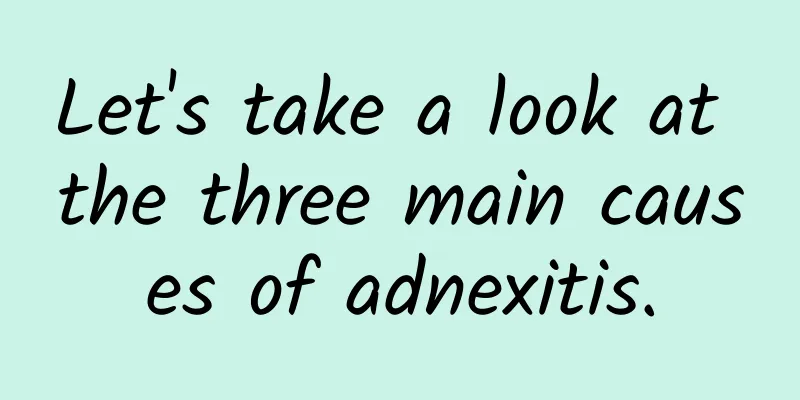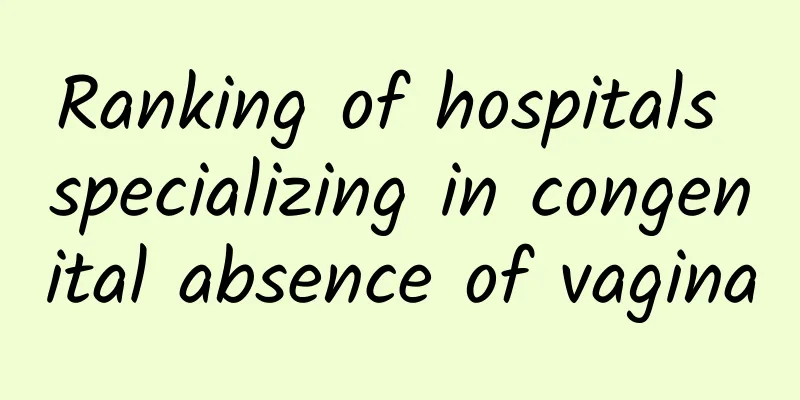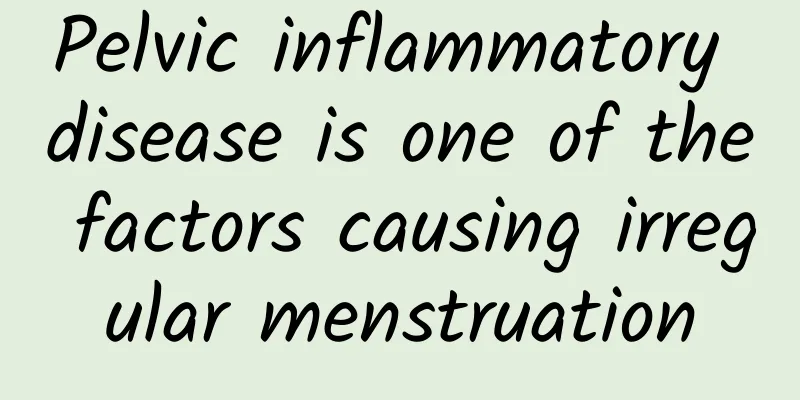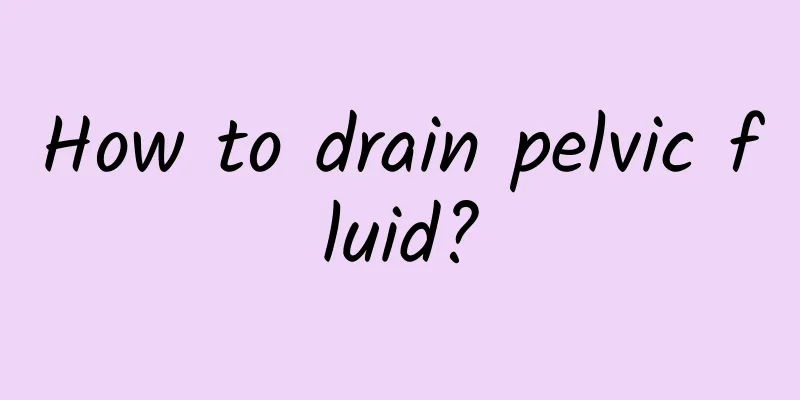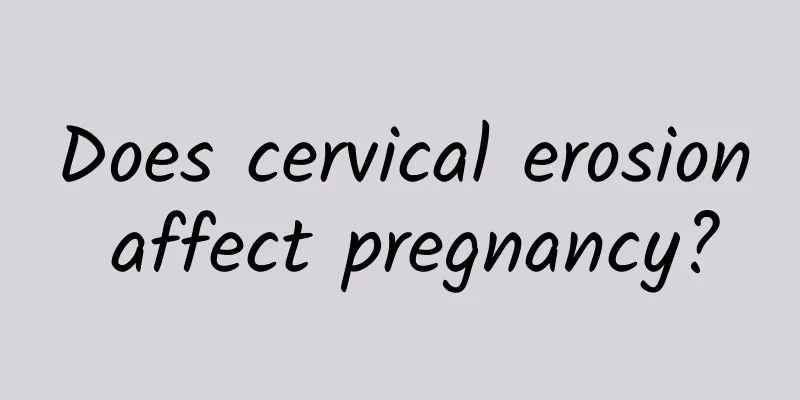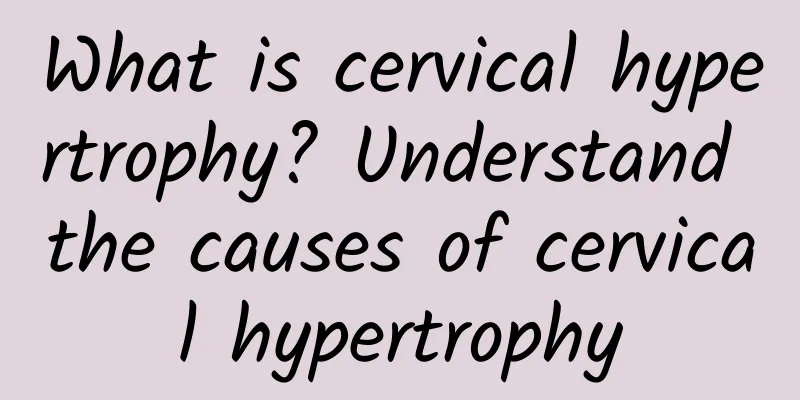Debunking exercise myths: Exercise doesn’t necessarily make you thin!
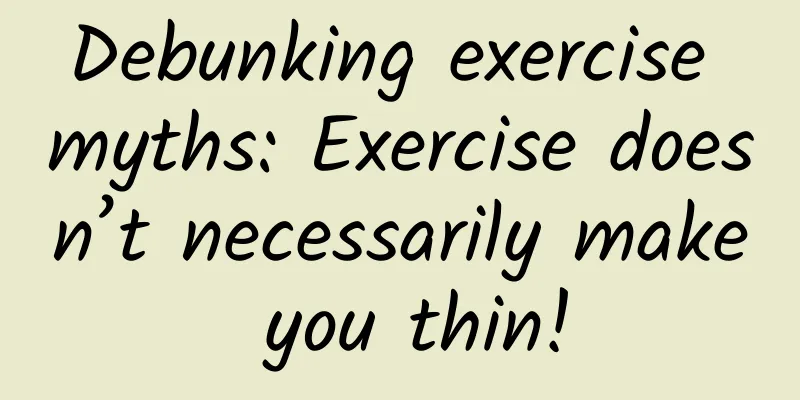
|
Q: In order to lose weight, I joined a fitness club and spent an hour in the gym every day, but I didn’t lose weight, I gained weight instead! Q: I have set aside 2 to 3 hours every day for exercise, but I still can’t lose weight? Q: Everyone says that you need to exercise more to lose weight, but I can’t exercise (maybe because I don’t have the money to join a gym, I don’t have the time, or I’m in a wheelchair or use crutches, etc.), so the inability to exercise is the main reason why I can’t lose weight! Once upon a time, the idea that exercise helps lose weight has been deeply rooted in the minds of ordinary people. However, does exercise really help lose weight? Is it necessary to engage in special exercises (such as going to the gym, playing basketball, etc.) in order to lose weight? A while ago, a colleague showed me the August issue of Time magazine (August 17, 2009). The title of the cover of this issue was "The Myth of Exercise", which read, "Of course, exercise is good for you, but it won't make you lose weight. The food you eat is the main factor that affects whether you will lose weight." This topic is quite interesting. Stella often sees many people on my blog spending a lot of time exercising every day in order to lose weight, but with little effect. So we decided to discuss this topic together and share the wonderful content in the article with everyone. [A lot of information in this article is quoted from Time magazine. If you are interested in this article, please refer to page 26 of Time magazine published on August 17, 2009.] A: Why doesn’t exercise make you thinner? "Eat less and exercise more" is a well-known way to lose weight. Therefore, many people will naturally add exercise to their weight loss plans and deliberately engage in certain sports in order to lose weight. But exercise is a very hard thing. You sweat all over and do boring exercise for dozens of minutes in hot weather, and then you feel exhausted and your muscles ache all over. Therefore, some people choose to join a fitness club, or buy yoga classes to do more comfortable exercise in an air-conditioned room; or buy a treadmill or a bicycle to exercise at home. The purpose of various efforts is to try to lose weight or maintain a good figure by increasing the amount of exercise. But can exercise really make us lose weight? In my impression, exercise is always accompanied by food. When I was in elementary school, I would go to the municipal swimming pool with my older brothers and sisters to swim (basically we just played in the water, as we didn’t know how to swim at that time). Afterwards, we would buy some bread from the cafeteria next to the swimming pool (in those days, there was a small cafe next to the swimming pool that sold drinks, bread, and some swimming accessories like goggles). When I was a little older (I was already working as a weight loss nutrition consultant), I once bought a trial coupon for a hotel gym with a colleague. We walked to the gym, ran on the treadmill and rode the bicycle, and burned more than 300 calories with a sense of accomplishment. But when we were tired and walked home under the scorching sun, we saw an ice cream shop on the side of the road and naturally bought mung bean paste and ice smoothies to cool off and relieve fatigue. We were walking, eating and joking. I remember I told my colleague that all the calories we had just burned through exercise were gone, and my colleague said that not only were they gone, but we were actually in debt. ◎Why doesn’t exercise make you thinner? In the article "Why Exercise won't make you thin" published in Time magazine, John Cloud, the author, concluded that "Exercise is indeed good for your health, but it doesn't necessarily help you lose weight. In fact, it may make you gain some weight." Why does the author say that exercise may not make us lose weight but make us fatter? I believe that you, who are quick-witted, can probably guess part of the reason from the personal experience the nutritionist just shared - eating high-calorie foods after exercise! Of course, the biggest difference between scientists and ordinary people is that ordinary people draw conclusions based on experience, while scientists draw conclusions based on clinical research and scientific data. The author of this article also provides a lot of data to support the argument that "exercise will not make you thin". The following is a summary of some key points: 1. Exercise stimulates hunger! Although exercise can burn more calories and help lose weight, it can stimulate hunger, causing you to eat more food and making previous exercise ineffective. You may even gain weight because the calories you eat are greater than the calories you burn through exercise. [I really like this statement. I finally found an excuse for the mung bean paste I eat after exercise (sweat)] [Think about it from a different angle] Is setting up a "children's playground" in a fast food restaurant a "conspiracy"? Dr. Gortmaker and Dr. Kendrin Sonneville of the Children's Hospital published a study in the Internal Journal of Obesity. They conducted an 18-month study on 538 students. They found that when children started exercising, they ate more. And not just a little more. On average, they ate 100 calories more than the calories they burned through exercise. Therefore, Gortmaker, who specializes in childhood obesity, began to doubt the purpose of fast food restaurants setting up children's playgrounds. Perhaps children play in them for 5 minutes and burn 50 calories, but afterwards, due to the stimulation of exercise, they go into the store and eat 500 calories or more of food. This story tells us that if you have children who need to lose weight, in addition to letting them go to fast food restaurants less often, don’t assume that it’s okay for them to burn calories by playing in the playground of a fast food restaurant. Instead, you should pay attention to whether “burning more calories by playing” may cause your children to eat more. 2. Exercise creates a compensatory mentality! After exercise, you will develop a so-called compensatory mentality - you will reward yourself with food (to compensate for the calories consumed previously) or you will tend to reduce your activity level (to compensate for the previous over-exertion from exercise). Dr. Tomothy Church's research found that people who exercise more do not lose as much weight as those who do not exercise. Some people even gain weight instead of losing weight! This was an experiment conducted on 464 women who did not exercise regularly and were overweight. The subjects were divided into four groups, three of which exercised for 72 minutes, 136 minutes and 194 minutes per week respectively with the assistance of a personal sports coach for six months. The fourth group did not engage in any additional exercise and only maintained their daily physiological activity habits. The results showed that most of the subjects tended to eat more food after exercise than usual (before the experiment began); or they would use other methods to compensate, such as doing much less activity than usual after returning home. He called this phenomenon the compensatory mentality. It could be that exercise makes these people hungrier, or that they want to reward (compensate) themselves, or both. Whatever the reason, the result is that people like Stella eat more food after exercise than they burn during exercise. [Think about it from a different perspective] Is it necessary to force children to do more exercise if you want them to lose weight? Scholars conducted a study on 206 children aged 7 to 10 in three different schools in Plymouth, England (the weekly physical education courses were 9.2 hours, 2.4 hours and 1.7 hours respectively). They found that no matter how many hours of physical activity they engaged in at school, when the whole day was viewed, the amount of activity of the children in the three schools was similar. Those who engage in more physical activities at school before get out of class will not move more afterwards: because they have already consumed a lot of calories at school, these children who are more active at school will obviously become quieter and less active when they return home. Conversely, children who were less active at school were more likely to engage in more active activities after school, such as riding a bike or running around the neighborhood. " This story tells us that if children don't like to do a particular sport such as jogging, it is also a good idea to let them play some fun and active activities. 3. Exercise weakens self-control! Psychologists Mark Muraven and Roy Baumeister observed an interesting phenomenon: "Self-control is like a muscle: it weakens each day after you use it." To put it simply, when you force yourself to jog for an hour to lose weight, your self-control will weaken proportionally (the longer the time of forcing yourself, the weaker your self-control). For example, after exercise, you feel a little hungry because the exercise stimulates your appetite. Logically, you should just eat an apple. However, as the exercise time gets longer, your willpower becomes weaker. At this time, you may not be able to suppress your desire for sweets and choose to eat bread or drink a cup of bubble milk tea. Therefore, although it is said that "if we can avoid eating extra food or drinks after exercise, exercise will help us lose weight", because exercise will weaken self-control, only a small number of people can do it, and even if they can do it for a short period of time, they cannot continue to restrain themselves for a long time. B. How to correctly view the issue of exercise and weight loss? After reading the information Stella wrote about "Exercise won't make us thinner", many people may have a doubt: exercise seems to have more disadvantages than advantages, so it seems that it is better not to exercise? In fact, the purpose of Stella writing this article is not to stop people from exercising, but to give everyone a correct understanding of exercise: 1. Exercise is indeed good for health, but it may not be effective for weight loss! Perhaps due to the design of our bodies, exercise is not a good way to lose weight, but it does have many health benefits. In addition to strengthening cardiopulmonary function, promoting cardiovascular health (for example, exercise can increase good cholesterol HDL and improve insulin sensitivity) and helping prevent disease, exercise can also promote mental health and mental function...etc. However, it is not as helpful for weight loss as you think. (If you want to lose weight, the most effective and fundamental way is to start with diet) 2. You don’t have to engage in a specific activity to be considered exercising! What is the definition of exercise? Many people think that "effective" exercise must make you sweat all over and feel hot all over; that the exercise must make you feel breathless, tired, and exhausted; and that your stomach will feel empty after the exercise (as if this means that the body has consumed a lot of calories). But in fact, if you want to reap the health benefits of exercise, you only need to engage in activities that involve regular movement, such as doing your favorite gardening, cleaning the house, climbing stairs, and walking more. You don't need to force yourself to go to the gym or engage in exercise that makes you sweat and exhausted. [Note: There is currently no clear evidence that vigorous exercise (such as running) provides more benefits than moderate intensity activity (such as walking to get groceries home). Most of the research on the health benefits of exercise does not involve subjects using fitness equipment to exercise, but rather engaging in regular daily activities such as walking more and climbing stairs more often. Higher exercise intensity (such as running) does not bring better results. 】 3. "Active lifestyle" is more beneficial for weight loss than "occasional exercise"! I believe that after reading this, everyone has a preliminary understanding of the negative effects that "overly deliberate", "too intense", and "too stressful" exercise may have on weight loss. Therefore, the best exercise for losing weight is not the "special" exercise mentioned above that will make you sweat and feel exhausted, but the "daily physiological activities" that can be performed regularly and have low physiological activities. To burn calories, you don't have to force your muscles to do extreme activities, but to distribute the exercise throughout the day. Simply put, it is to develop an active lifestyle - for example, walk to buy breakfast, get off the bus one or two stops earlier or park the bus farther away to increase the amount of activity, or climb stairs instead of elevators, clean the environment diligently to keep the home clean, go for a walk in the small park after dinner; go cycling or go outing with family on holidays...etc. For modern people who sit in the office all day and lack daily physiological activities, it is impossible for us to go to the gym without putting pressure on the muscles after sitting all day. This occasional but excessively intense exercise will cause muscle pain and make you not want to move all day. It may also be detrimental to weight loss due to various problems such as stimulating appetite, weakening willpower, and the creation of a compensatory mentality. So instead of thinking about "exercise" but giving yourself a bunch of excuses such as no money, no venue, no time, too tired, etc. and always "thinking but not doing" about exercise; or going to the gym for two or three days a week and moving occasionally, it is better to change your current sedentary lifestyle and establish an active lifestyle instead. This not only avoids the negative effects of exercise on weight loss, but also achieves the goals of burning calories and maintaining health without spending a penny. On blogs, I often see many people forcing themselves to do a lot of exercise every day in order to lose weight. It would be fine if they lost weight, but many people gain weight instead of losing weight, and in the end they "lose all confidence"; there are also some people who try to spare a few hours a day for exercise and control their desire to eat to lose weight, but at the same time they worry, "If I don't exercise in the future, will I gain the weight back?" Basically, the key to weight loss is "what you eat, not how hard you work to consume it!" 』 Therefore, if daily exercise causes you a lot of pressure, if you have to spend more energy to control your desire to eat after exercise, if the result of exercise does not make you thinner, if you cannot sustain this exercise pattern, if exercising makes you unhappy, if you are even more at a loss about how to lose weight, and always worry about whether you will gain weight if you don’t have time to exercise, then I sincerely suggest that you readjust your attitude towards exercise and replace your current exercise pattern with an "active lifestyle". Finally, I would like to remind everyone again that obesity is a lifestyle disease. It is caused by modern people's poor diet (eating too much high-fat, high-sugar, high-salt food, eating too refined food, etc.) and a lifestyle of more sitting and less movement. Not going to the gym to exercise is not the cause of obesity. Therefore, the most fundamental solution to lose weight is not to engage in special exercises, but to start with diet, learn to choose the right food, change bad eating habits, and develop active lifestyle habits. This article is especially dedicated to those who have tried hard to exercise but have not seen good results; those who tell themselves that they cannot lose weight because they "don't have the time or money to exercise"; or those who cannot go to the gym or play basketball or other high-intensity sports due to physical problems. I hope that through this article, the above people can regain their dream of "successfully losing weight." This article comes from: Nutritionist Stella's Weight Loss & Nutrition Blog ※For more information, please see "Nutritionist Stella's Weight Loss & Nutrition Blog" |
<<: If you want to gain muscle, exercise alone is not enough. Brown rice + meat = muscle gain
>>: Research confirms: Eating chocolate cake is more effective in losing weight
Recommend
Squats aren’t the only way to get a perky butt! 5 yoga tiger poses to lift your buttocks and slim your thighs
Who says that being sexy requires having big brea...
What are the causes of irregular menstruation? There are 4 common dietary taboos for irregular menstruation
Menstrual disorders, also known as menstrual diso...
Introduction to menopausal hospitals with good reputation
There are many hospitals that perform menopause s...
Small snacks, big calories, are you eating them right?
Calorie table of common snacks during the Chinese...
What causes postpartum cervical erosion? Three causes of postpartum cervical erosion
Every woman who tries hard to have a baby deserve...
Analysis of common causes of cervical erosion
As women pay more attention to their health, many...
What are the symptoms and characteristics of subserosal fibroids?
Subserosal fibroids are a type of uterine fibroid...
Surgical method of negative pressure aspiration for artificial abortion
The preoperative preparation for negative pressur...
TCM Diagnosis of Pelvic Peritonitis
Pelvic peritonitis is a common gynecological dise...
What harm does irregular menstruation do to the body
Blood diseases, hypertension, liver diseases, end...
Are these 3 foods more nutritious after sprouting? One picture will tell you in seconds: eating this way can improve immunity and help metabolism
Even if the potatoes at home have sprouted, you a...
What medicine should I take for dizziness and anemia caused by uterine fibroids? Will uterine fibroids cause anemia and dizziness?
What medicine should I take for dizziness and ane...
What are the drugs for treating chronic pelvic peritonitis?
In life, many women suffer from chronic pelvic in...
What are the symptoms of pelvic peritonitis?
There are many patients with pelvic peritonitis, ...
What are the examination methods for chronic adnexitis?
The examination items for adnexitis are the main ...
